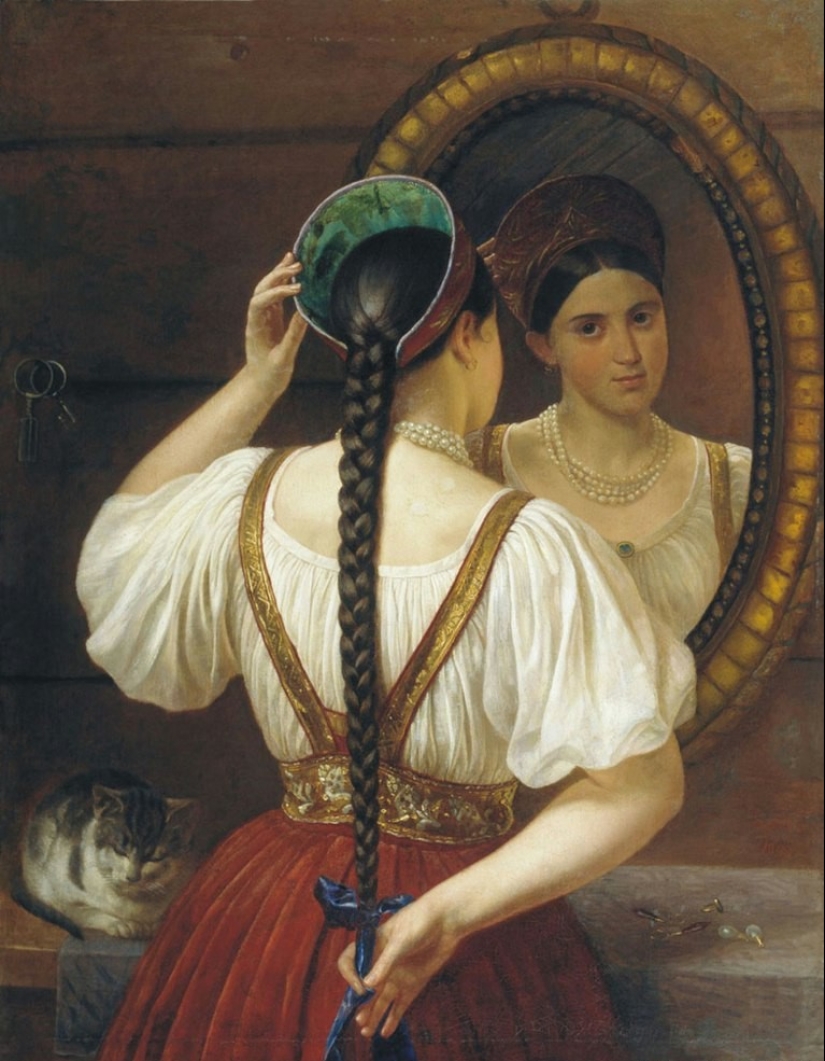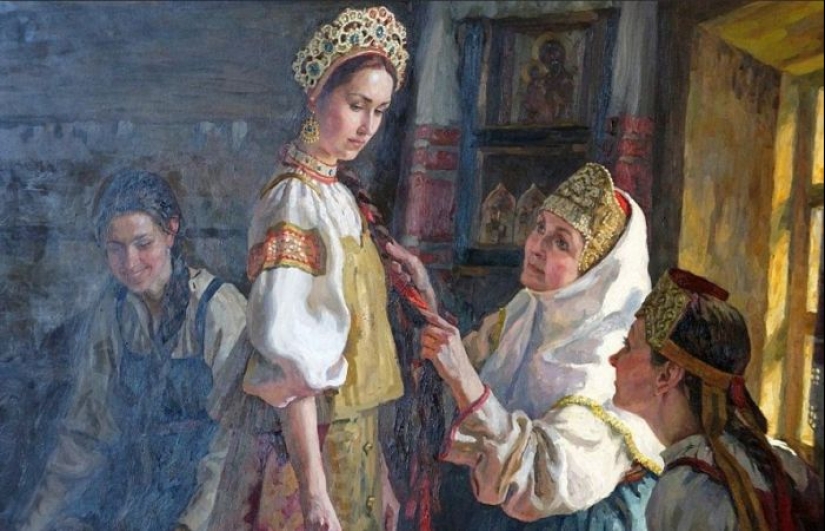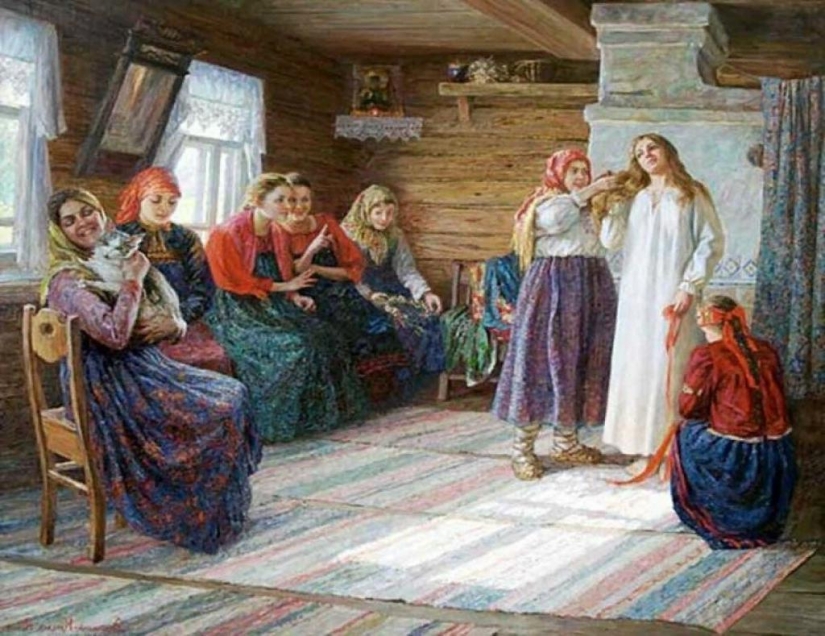Why didn't women in Rus' cut their hair?
Categories: History
By Pictolic https://pictolic.com/article/why-didn39t-women-in-rus39-cut-their-hair.htmlSince ancient times, women in Rus' have been adorned with long braids that were never cut. Only at the beginning of the 20th century, along with emancipation, did the fashion for short hairstyles come. But even after this, many ladies still preferred to follow the old tradition. Why have representatives of the fair sex taken care of their hair for centuries and spared no time in caring for it?

A reverent attitude towards women's hair had a special, sacred meaning. Marital status was also determined by hairstyle. Unmarried girls wore one long braid directed along the spine. It was believed that this arrangement of hair helps to fill with vitality.

When a girl reached the age suitable for marriage, a ribbon was woven into her braid. Seeing this decoration, the grooms began to send matchmakers. The appearance of a second ribbon in the braid clearly signaled that its owner already had a fiancé and their union was blessed by her parents.
Before the wedding, a bachelorette party was held, during which the bride-to-be's friends intertwined one braid into two. The process took place amid sobs and lamentations. The girl left her home, went to someone else’s family and was mourned as if at a funeral. Two braids indicated a married woman. They were often placed around the head, which was decorated with a kokoshnik. Unmarried girls with one braid were prohibited from wearing a kokoshnik.
A special ritual was combing hair. It was believed that during this process the girl's life force had to be dealt with. Therefore, they combed their hair themselves, at least entrusting this task to their closest people. Of course, the husband could also participate in this.

During pregnancy, hair was treated with particular care. Damaging the hairstyle was tantamount to an attack on the health and happiness of the unborn child. Newborns under one year old could not only have their hair cut, but also comb their hair. Our ancestors believed that manipulation of a baby's hair could affect his health and even lead to death.
Sometimes the hair was still cut off. True, they did not do this themselves and as a punishment. The deprivation of braids was a terrible shame for the women of Rus'. This was punished for the most serious offenses, such as loss of chastity before marriage and adultery. In such cases, the hair was cut by the relatives of the deceived groom or the betrayed husband.

It is worth saying that innocence in Rus' began to be taken seriously only with the advent of Christianity. The pagans, on the contrary, valued young women with a child, as this proved their fertility. They were not too strict about infidelity; usually everything depended on the personal attitude to the situation of the spouses.
Before the adoption of Christianity, people rarely braided their hair. Loose hair was held in high esteem, which was sometimes tied with a ribbon or held in place with a hoop. This decoration could be simple wooden, but more often it was skillfully decorated. For this they used fabric, beads, bird feathers, pieces of fur and fresh flowers.

The church forbade wearing loose hair. Women were taught that this was depraved and tantamount to a call for intimacy. “Simple hair” could only be worn at home, when no one else was watching, or in front of her husband. Women who appeared with fluffy hair in public places were considered fallen or insane.
Recent articles

It's high time to admit that this whole hipster idea has gone too far. The concept has become so popular that even restaurants have ...

There is a perception that people only use 10% of their brain potential. But the heroes of our review, apparently, found a way to ...

New Year's is a time to surprise and delight loved ones not only with gifts but also with a unique presentation of the holiday ...